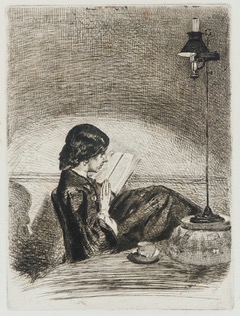By Andrea A. Firth

One of many presents I gained from grad college* was studying tips on how to learn as a author. I used to be instantly captivated and impressed by the enduring inventive nonfiction writers we learn: Brenda Miller, Bernard Cooper, Roxane Homosexual, Adrienne Wealthy, John McPhee—the record goes on and on. The discussions in craft lessons confirmed me tips on how to establish the artwork and craft at work of their writing. Add to that, weekly workshops by which we regarded for the craft at work in our personal writing and alternatives to include extra. That’s when studying as author clicked for me.
However I recall early in this system, nervously asking my mentor, the wonderful author and educator Marilyn Abildskov: How do I translate my new-found understanding of all the good craft I’m studying into my very own writing?
Marilyn mentioned, Don’t fear—studying as a author is the 1st step, your writing craft will come. It really works like osmosis. I’ve held on to that metaphor for years now. You learn. You take in the craft. And over time, with some effort and considerably magically, you attain an equilibrium, and that craft, those self same methods, seems in your personal work.
In immediately’s Spherical Up, we take a look at a number of examples of how writers have approached the thought of studying as a author.
Vickie Barret opens her current Brevity Weblog essay, “Memoir Writers: Be Like Wayne Thiebaud—An Obsessive Thief,” along with her recollection of a gifted and beneficiant writer- instructor, who, in response to being requested what to learn whereas writing, mentioned “he couldn’t learn something in the identical style he occurred to be writing in.” On the time, Barret was each writing a memoir and studying lots of memoirs, devouring one after one other. Regardless of the writer-teacher’s recommendation, she saved studying memoirs and exploring what she may find out about writing from them. Maintain studying Barret’s essay to the top as she expands on that method with a perceptive connection to artwork.
In her Weblog essay, “On Egocentric Studying,” Ann Leahy says, “That attentiveness to craft within the means of studying, even when it’s finished for pleasure, is what I’ve lengthy referred to as writerly studying.” Leahy describes writerly studying as “reverse engineering,” investigating how the writing is completed and contemplating the selections the author makes. She additionally contains insights on studying from writer-teachers Francine Prose, Suanne Greenberg and Richard Bausch. And on studying as a egocentric act, Leahy defines that as “getting one thing out of a textual content, taking one thing into oneself as a author.”
Jillian Barnet shares actionable suggestions on what she’s discovered about writing essay her Weblog put up about serving as a volunteer reader for the literary magazine Underneath the Solar. Her act of literary citizenship improved her writing and modifying and expanded her writing community. Try her record.
However what when you have bother maintaining? Holly Hagman offers a number of good recommendations on tips on how to handle that feeling of studying inadequacy in her Weblog essay On Being a Gradual Reader within the Literary World. Hagman’s take away: So what should you’re a slower reader than your school buddies, your writing friends, or your mother—personal your tempo and hold turning the pages.
And Julia Holston’s Weblog essay, “The Bother with Studying,” outlines the various causes she will be able to’t get a lot studying finished—issues we are able to most likely all relate to. Distractions, in fact, just like the sensible cellphone and its irresistible feed and engaging video games and that heat cup of espresso paired with a snuggly cat which leaves no fingers obtainable to carry a e book. A hilarious tackle the challenges of studying as a author.
__
* A fast caveat to the introduction: I don’t assume getting an MFA is a vital requirement to studying tips on how to learn as a author. That was merely my path. There are lots of methods to learn to learn a author—simply do it (a self-taught method) which you’ll increase by studying the Weblog, taking on-line lessons, becoming a member of a workshop, and so on. And, I do nonetheless learn merely for pleasure, however I admit that now, even with a seaside learn, I by no means need to miss the chance for osmosis, so I at all times have sticky notes readily available to tag the great craft I discover whereas studying.
__________
Andrea A. Firth is a Brevity Weblog editor. Learn her Substack The whole lot Essay! right here.
Uncover extra from The Brevity Weblog
Subscribe to get the most recent posts despatched to your e-mail.


Leave a Reply